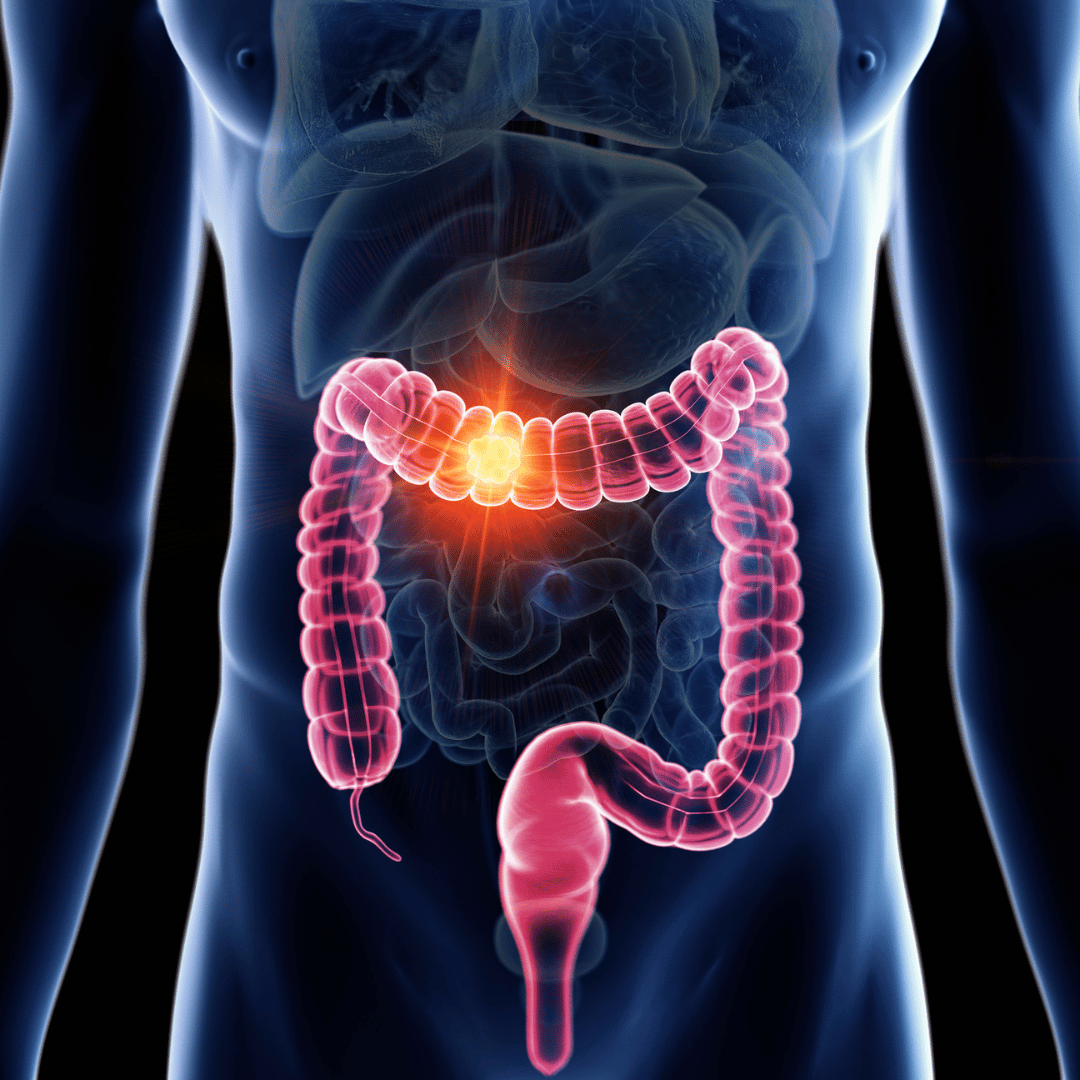
5 Worst Fruits For Bowel Cancer
While fruits are generally known for their nutritional value and health benefits, it’s important to recognize that certain fruits may have varying effects on specific health conditions, including bowel cancer.
Bowel cancer, also known as colorectal cancer, is a serious condition that affects the colon or rectum.
It’s crucial to pay attention to our dietary choices as they can play a significant role in prevention.
We aim to provide a balanced perspective and this is not meant to discourage fruit consumption in general.
A well-rounded diet that includes a variety of fruits, along with other healthy lifestyle choices, remains important for overall health and reducing the risk of various diseases.
So, join us as we delve into the details of these specific fruits and their relationship with bowel cancer. Let’s get started!
Number 5. Dried fruits.
Dried fruits like raisins, dates, and prunes are popular choices due to their convenience, long shelf life, and sweet taste.
However, it’s important to be mindful of their potential impact on bowel health.
One concern with dried fruits is their high sugar and calorie content.
The drying process removes water from the fruits, resulting in a more concentrated sugar content.
This means that even though dried fruits contain natural sugars, consuming them in large quantities can lead to a significant sugar intake.
Excessive sugar consumption has been linked to various health issues, including obesity and an increased risk of cancer, including bowel cancer.
Moreover, the high sugar content in dried fruits can have implications for bowel health.
Excess sugar consumption can disrupt the balance of bacteria in the gut, potentially leading to digestive issues like bloating, gas, and diarrhea.
Additionally, a diet high in sugar and low in fiber, which is often the case with dried fruits, may contribute to an increased risk of bowel cancer.
A study published in the European Journal of Nutrition in 2019 investigated the association between dried fruit consumption and the risk of colorectal cancer.
The findings indicated that consuming larger amounts of dried fruit was associated with a higher risk of developing colorectal cancer.
While dried fruits do offer some nutritional benefits, such as fiber and certain vitamins and minerals, it’s important to consume them in moderation as part of a balanced diet.
Opting for fresh or frozen fruits can be a healthier alternative, as they contain more water and can be lower in overall sugar and calorie content.
When incorporating dried fruits into your diet, it’s advisable to pay attention to portion sizes and choose varieties without added sugars.
Mixing them with nuts or seeds can help balance the sugar content and add more nutritional value.
It’s always best to consult with a healthcare professional or registered dietitian for personalized recommendations based on your specific health needs and goals.
Remember, moderation is key when it comes to dried fruits, and a varied diet that includes a wide range of fresh fruits and vegetables can provide optimal nutrition and support bowel health.
Number 4. Fruit juices
Fruit juices, particularly those that are commercially processed, have gained popularity as a convenient and seemingly healthy beverage option.
However, it’s important to be aware of their potential impact on bowel health, especially when consumed regularly and in excess.
One concern with fruit juices, especially commercially processed ones, is the presence of added sugars.
Many fruit juices on the market contain significant amounts of added sugars to enhance their taste.
Regularly consuming high amounts of added sugars, including those in fruit juices, has been associated with various health issues, including obesity, type 2 diabetes, and an increased risk of cancer, including bowel cancer.
Additionally, fruit juices lack the fiber content found in whole fruits.
Fiber is an important component of a healthy diet, as it helps regulate digestion and promotes bowel regularity.
Without the fiber, the natural sugars in fruit juices are absorbed more quickly into the bloodstream, leading to spikes in blood sugar levels.
This rapid absorption of sugars can put a strain on the body’s insulin response and potentially contribute to insulin resistance, a risk factor for bowel cancer.
A study published in the British Medical Journal in 2019 examined the association between sugary drinks, including fruit juices, and the risk of cancer.
The findings indicated that higher consumption of sugary drinks, including fruit juices, was associated with a higher risk of overall cancer.
While whole fruits offer the benefits of fiber, vitamins, minerals, and antioxidants, fruit juices are often stripped of these important components during processing.
It’s recommended to opt for whole fruits rather than fruit juices to maximize the nutritional benefits and minimize the potential negative effects on bowel health.
If you do choose to consume fruit juices, it’s important to read labels carefully and select those with no added sugars.
Even then, it’s advisable to limit your consumption and treat fruit juices as an occasional treat rather than a daily beverage choice.
Freshly squeezed juices or homemade smoothies that include the whole fruit, including the fiber, can be a healthier alternative to commercially processed fruit juices.
Remember, moderation and balance are key when it comes to fruit juices.
Focus on consuming whole fruits as the primary source of your fruit intake and aim to meet your hydration needs primarily through water.
By doing so, you can enjoy the nutritional benefits of fruits while minimizing potential risks to bowel health.
Number 3. Canned fruits in syrup
Canned fruits can be a convenient option, but it’s important to be cautious when it comes to those that come in heavy syrup.
These canned fruits are often loaded with added sugars, which can have negative implications for bowel health and overall well-being.
High sugar consumption has been linked to a range of health issues, including obesity, type 2 diabetes, cardiovascular disease, and an increased risk of certain cancers, including bowel cancer.
Opting for foods that are lower in added sugars is generally recommended to maintain a healthy diet and reduce the risk of these health conditions.
Fresh or frozen fruits without added sugars are a better choice for promoting bowel health.
They retain their natural sweetness and are packed with essential vitamins, minerals, and fiber.
Fiber is particularly important for bowel health, as it promotes regularity, aids digestion, and helps maintain a healthy gut environment.
A study published in the journal Nutrients in 2017 examined the relationship between dietary sugar intake and the risk of colorectal cancer.
The findings suggested that a high intake of added sugars, such as those found in heavily syruped canned fruits, was associated with an increased risk of colorectal cancer.
When selecting fruits, it’s important to read labels and choose options that are canned in water or their own juice rather than heavy syrup.
This reduces the added sugar content and allows you to enjoy the natural flavors and nutritional benefits of the fruit without unnecessary sweeteners.
Additionally, incorporating a variety of fresh or frozen fruits into your diet can provide a range of nutrients and phytochemicals that support overall health, including bowel health.
Experiment with different fruits to add diversity to your diet and take advantage of the unique health-promoting properties they offer.
Remember, making informed choices about the foods we consume is crucial for maintaining good health.
By opting for fresh or frozen fruits without added sugars, you can support bowel health and reduce the potential risks associated with high sugar consumption.
Number 2. Fruit preserves and jams
Fruit preserves and jams are popular spreads that add a burst of fruity flavor to our meals and snacks.
However, it’s important to be mindful of their high sugar content and potential impact on bowel health.
Fruit preserves and jams are typically made by combining fruit with a significant amount of sugar to preserve the fruits and enhance their taste.
The high sugar content in these products can have negative effects on blood sugar levels, particularly when consumed in excess.
Regularly consuming foods high in added sugars has been linked to various health issues, including obesity, type 2 diabetes, and an increased risk of cancer, including bowel cancer.
Excessive consumption of fruit preserves and jams can lead to a higher intake of added sugars, contributing to imbalances in blood sugar levels and potential insulin resistance.
These conditions can increase the risk of bowel cancer and other chronic diseases.
A study published in the British Medical Journal in 2013 investigated the association between sugar-sweetened food and beverages and the risk of colorectal cancer.
The findings indicated that a higher intake of sugar-sweetened foods, including jams and jellies, was associated with an increased risk of developing colorectal cancer.
To promote bowel health, it’s advisable to consume fruit in its whole, fresh form rather than relying heavily on fruit preserves and jams.
Whole fruits contain natural sugars along with fiber, vitamins, minerals, and antioxidants that contribute to overall health.
The fiber in whole fruits aids digestion, promotes bowel regularity, and supports a healthy gut environment.
If you enjoy the taste of fruit spreads, look for options that are lower in added sugars or consider making your own homemade versions using natural sweeteners like honey or maple syrup.
Moderation is key, and it’s important to be mindful of portion sizes and overall sugar intake.
Remember, a balanced and varied diet, including a wide range of whole fruits, can provide optimal nutrition and support bowel health.
By being mindful of your sugar consumption and making informed choices, you can reduce the potential risks associated with excessive consumption of fruit preserves and jams, promoting a healthier bowel and overall well-being.
Number 1. Citrus fruits with high acidity
Citrus fruits like oranges, grapefruits, and lemons are often celebrated for their refreshing taste, high vitamin C content, and antioxidant properties.
These fruits provide numerous health benefits and are generally considered a healthy addition to a balanced diet.
However, it’s important to note that the high acidity of citrus fruits may cause digestive issues for some individuals, particularly those with certain gastrointestinal conditions.
The high acidity in citrus fruits can potentially irritate the lining of the gastrointestinal tract, leading to discomfort, heartburn, acid reflux, or other digestive symptoms.
Conditions such as gastroesophageal reflux disease (GERD) or peptic ulcers may be aggravated by the consumption of highly acidic foods, including citrus fruits.
If you have a known gastrointestinal condition or experience digestive discomfort after consuming citrus fruits, it’s essential to listen to your body and consume these fruits in moderation.
Pay attention to how your body responds and adjust your intake accordingly.
It’s worth mentioning that the acidity of citrus fruits can vary depending on the specific fruit and its ripeness.
For some individuals, consuming less acidic varieties of citrus fruits or opting for milder alternatives like berries or apples may be a more suitable choice.
While citrus fruits offer a range of health benefits, including their vitamin C content and antioxidant properties, it’s important to find the right balance for your individual needs and digestive tolerance.
If you have concerns or experience persistent digestive issues, it’s advisable to consult with a healthcare professional or registered dietitian who can provide personalized advice based on your specific condition.
Remember, everyone’s body is unique, and it’s important to listen to your own body’s signals.
By being mindful of your digestive health and making informed choices, you can still enjoy the nutritional benefits of citrus fruits while minimizing any potential discomfort.
And there you have it—the 5 worst fruits for bowel cancer.
We’ve explored how certain fruits, when consumed in excess or for individuals with specific gastrointestinal conditions, can potentially have negative implications for bowel health and increase the risk of bowel cancer.
From dried fruits high in concentrated sugars to canned fruits in heavy syrup and fruit juices lacking fiber, these fruit choices may contribute to digestive issues and potentially increase the risk of bowel cancer.
It’s important to note that moderation and individual circumstances play a key role in making informed choices about fruit consumption.
While these fruits may have potential risks, they can still be enjoyed as part of a balanced diet when consumed in appropriate quantities and with consideration to personal health factors.
If you found this informative, please share it with others who may benefit from this knowledge.
Now, we’d like to hear from you: Have you made any changes to your fruit consumption based on this information?
Let us know in the comments section below.
We value your feedback and look forward to learning from your experiences.
Remember, maintaining a balanced and varied diet, along with a healthy lifestyle, is key to promoting overall health and reducing the risk of diseases like bowel cancer.
By making informed choices and being mindful of our fruit consumption, we can support our bowel health and work towards a healthier future.









